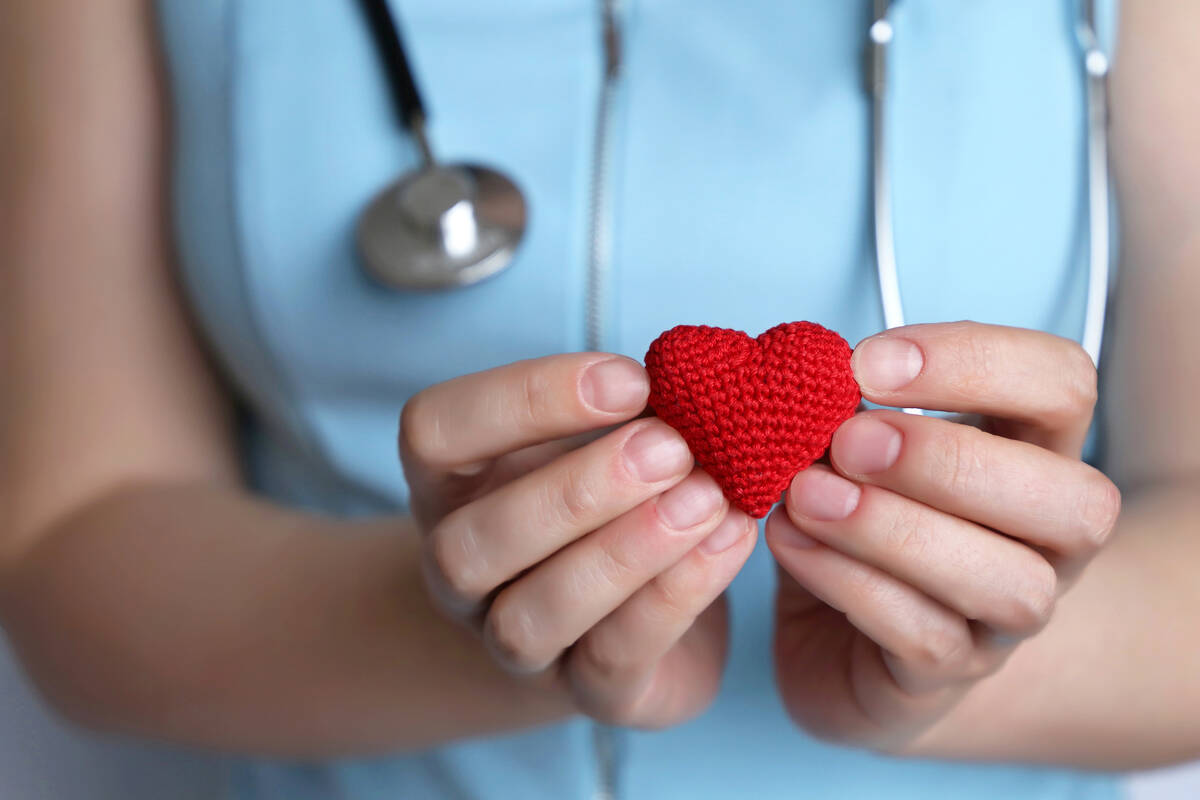Heart-healthy precautions to take during the holidays
Songwriters like to tell us this is the most wonderful time of the year. But according to the American Heart Association, this is the season when we’re most likely to die of cardiac disease.
A study published in the association’s Circulation journal found that more cardiac deaths happen on Christmas Day than any other day of the year, followed by Dec. 26 and Jan. 1 at Nos. 2 and 3.
While that information may not be widely known by the general public, it is to those on the front lines.
“It’s something we’re all aware of,” said Dr. Randy Feikes, a cardiovascular surgeon who’s a member of the American Heart Association board of directors and chief medical officer of the Valley Health System.
A year-round healthful diet that includes high fiber intake and low consumption of sugar-sweetened beverages and an active exercise program go far in reducing holiday heart risk, said Katie Spada, a registered dietitian at University Medical Center. But there are a few other precautions you can take during the holidays.
Limit stress on the body
“A lot of times, people will try to save up their calories or their appetites for big meals,” Spada said, “and then they’re really overconsuming in one session.”
Not such a good idea.
“One of the biggest things we can do to help minimize risk is eating regular meals leading up to a big holiday meal,” she said. “A lot of times, we’ll see blood sugar swings because we’re fasting during the day and overconsuming at night. We’re fighting against physiology when we skip breakfast and lunch in preparation for Christmas dinner and increasing the stress on the body. Stress mitigation is really one of the best ways to optimize your cardiovascular health.”
“Pacing yourself,” as some like to look at it, also can contribute to overeating later, she said, because eating too little can throw the hunger hormones out of whack.
“When we show up to those meals overly hungry, we think it’s willpower, but it’s really your body making up the energy deficit over the day,” Spada said.
The key is consistent regular meals, with a good balance of fiber, protein, fat and carbohydrates, she said. Don’t go more than four to six hours without eating. And that means a meal or a balanced snack — “not a cookie as you run out the door.”
The idea that eating big meals late in the evening can lead to cardiac attacks is a myth, she said, although late-hour big meals can adversely affect sleep.
Alcohol consumption can contribute to those fatal attacks, however.
“There’s a lot more alcohol consumption on the holidays,” Spada said. “Avoid drinking on an empty stomach, and see if you can alternate your drinks with water. Those two things can be beneficial in reducing our stress from alcohol.”
Feikes also stressed the hazards alcohol can pose.
“There’s so much data on how horrible alcohol is, even in moderation,” he said. Avoiding it completely is best, but people should at least practice moderation, he said. And it’s important to stay hydrated, with a goal to consume twice as much water as alcohol.
Feikes also stressed the importance of consuming less meat and increasing the plant-based part of your diet.
Heed warning signs
Remember to be aware of the cardiac warning signs, he said. Those can include the “classic” chest pain extending down the arm, but he said women may feel discomfort in the upper arm, neck or jaw, and people who are diabetic can have shortness of breath, light-headedness, nausea and dizziness.
There’s a crucial window of opportunity after which treatment becomes less effective, Feikes said, and holiday chaos can lead to bypassing that window.
“The concept of ‘I’m going to wait and see what happens’ is incredibly dangerous,” he said. “If things don’t feel right, don’t wait” to seek treatment.
If you haven’t paid attention to your diet, formulating an exercise routine and doing what you can to reduce the stress in your life, now is a good opportunity, Feikes said.
“During the holiday season, as you reflect on the new year and spend time with people you care about, it’s a really good time to develop a program” of diet and exercise, he said. “The best one is the one you will actually do.
“People you care about also care about you. The best way you can show people you care is to take care of yourself so you’ll be around longer.”


















